Ecological Society of America announces 2023 Fellows
April 5, 2023
For immediate release
Contact: Heidi Swanson, 202-833-8773 ext. 211, gro.asenull@idieh
The Ecological Society of America is pleased to announce its 2023 Fellows. The Society’s fellowship program recognizes the many ways in which its members contribute to ecological research, communication, education, management and policy. This year, the ESA Governing Board has confirmed seven new Fellows and ten new Early Career Fellows.
Fellows are members who have made outstanding contributions to a wide range of fields served by ESA, including, but not restricted to, those that advance or apply ecological knowledge in academics, government, non-profit organizations, and the broader society. They are elected for life.
Early Career Fellows are members within eight years of completing their doctoral training (or other terminal degree) who have advanced ecological knowledge and applications and show promise of continuing to make outstanding contributions to a wide range of fields served by ESA. They are elected for five years.
ESA established its Fellows program in 2012 with the goal of honoring its members and supporting their competitiveness and advancement to leadership positions in the Society, at their institutions, and in broader society. Past ESA Fellows and Early Career Fellows are listed on the ESA Fellows page.
“This year’s Fellows and Early Career Fellows have made tremendous scientific and societal impacts through their work and are highly regarded in their subdisciplines,” said ESA President Sharon Collinge. “Their accomplishments reflect the breadth and depth of our field, and its relevance to pressing societal concerns. I am glad that ESA is home to such a dedicated group.”
ESA will formally acknowledge and celebrate its new Fellows for their exceptional achievements during a ceremony at ESA’s 2023 Annual Meeting in Portland, Oregon.
Fellows elected in 2023 in recognition of their contributions to the science of ecology:
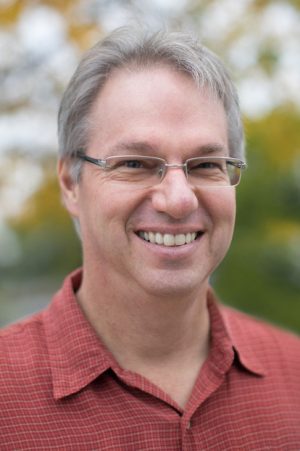
James Bever. Photo by Andy White.
James D. Bever, Foundation Distinguished Professor, University of Kansas, Department of Ecology and Evolutionary Biology; Kansas Biological Survey and Center for Ecological Research
James Bever integrates theory with empirical tests of population and community dynamics of plants and microbes. He received his B.S., M.S. and Ph.D. from the University of Illinois, University of Michigan and Duke University, respectively. He developed the plant–soil feedback experimental and theoretical approaches to understand the soil microbiome influence on plant community structure. His work contributed to a growing awareness of the role of soil pathogens and mutualists in plant species coexistence, succession, biodiversity-ecosystem function relationships, invasion, and native plant restoration. His work also tests forces influencing the dynamics and stability of the mycorrhizal mutualism.
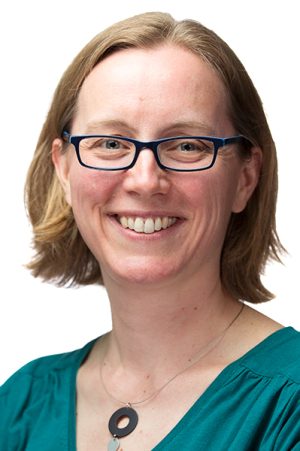
Meghan Duffy. Photo by Cy Abdelnour.
Meghan A. Duffy, Susan S. Kilham Collegiate Professor, University of Michigan, Department of Ecology and Evolutionary Biology
Meghan Duffy is an aquatic and disease ecologist studying the causes and consequences of infectious disease outbreaks. Her research has especially focused on understanding how factors outside of a single host–parasite pairing – such as predators, resources, and abiotic factors – influence patterns of disease in nature. She received her B.S. from Cornell University and her Ph.D. from Michigan State University and the Kellogg Biological Station, then completed a postdoc at the University of Wisconsin. In addition to her work on host-parasite interactions, she has led efforts to better support the mental health and wellbeing of graduate students and others in academia.
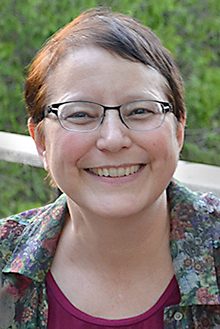
Marie-Josee Fortin. Photo by Virginie Angers.
Marie-Josee Fortin, Professor, University of Toronto, Department of Ecology and Evolutionary Biology
Marie-Josee Fortin is a spatial ecologist. Her research is at the interface of several disciplines (spatial ecology, conservation, disturbance ecology, community ecology, landscape genetics, spatial epidemiology, spatial statistics, spatially explicit modeling and network theory) where the most pressing ecological problems lie. She has devoted her career to the development of novel spatial statistics, analytic methods and spatially explicit simulation models to predict species dispersal in fragmented landscapes for the conservation of biodiversity.
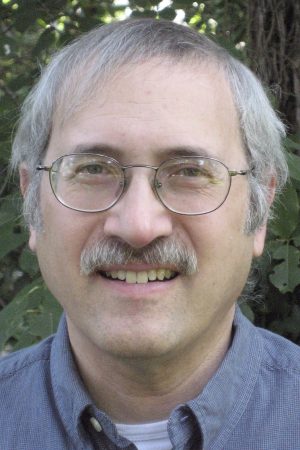
Louis J. Gross. Photo by Marilyn Kallet.
Louis J. Gross, Chancellor’s Professor Emeritus, University of Tennessee, Knoxville, Department of Ecology and Evolutionary Biology and Department of Mathematics
Louis Gross is a mathematical and computational ecologist. He was the founding director of the National Institute for Mathematical and Biological Synthesis at the University of Tennessee and was the director of the Institute for Environmental Modeling. He completed a B.S. degree in mathematics at Drexel University and a Ph.D. in applied mathematics at Cornell University. His research focuses on quantitative applications in many areas of ecology, including disease ecology, spatial control for natural resource management, plant ecology and the development of quantitative curricula for life science undergraduates. His recent research is on linkages between models of human behavior and climate change.
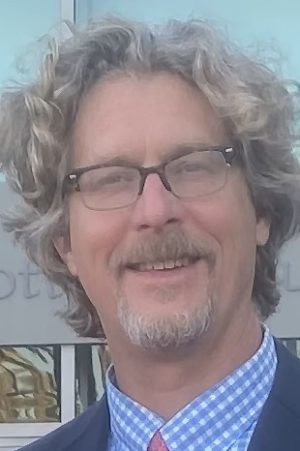
Brian Silliman. Photo by Stephanie Wear.
Brian Silliman, Rachel Carson Distinguished Professor of Marine Biology and Conservation, Duke University, Nicholas School of the Environment
Brian Silliman is the Rachel Carson Distinguished Professor of Marine Biology and Conservation at Duke University in the Nicholas School of the Environment. He holds both B.A. and M.S. degrees from the University of Virginia, and completed his Ph.D. in ecology and evolutionary biology at Brown University. His research is focused on community ecology, food web ecology, global change, plant–animal interactions, coastal ecosystems and their services, top-predator recovery and rewilding and the ecological consequences of positive species interactions in natural and restored systems.
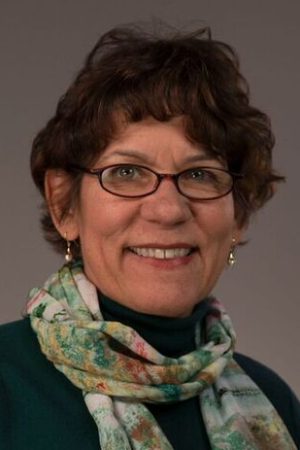
Caryn C. Vaughn. Photo by William Farrell.
Caryn C. Vaughn, George Lynn Cross Professor, University of Oklahoma, Department of Biology and Oklahoma Biological Survey
Caryn Vaughn is a stream ecologist interested in the connections between biodiversity and ecosystem function, and how properly functioning ecosystems benefit humans. Most of her work has focused on unionid mussels, a highly diverse and imperiled fauna that serve as hotspots of biological activity in many rivers. She received her Ph.D. in zoology from the University of Oklahoma and conducted postdoctoral studies in marine biology at Rice University. She is currently synthesizing over 30 years of data on mussel functional traits, community change, environmental change and ecosystem processes to forecast future ecosystem function in rivers across a biogeographic region.
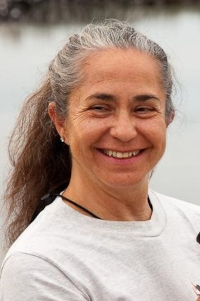
Enriqueta Velarde. Photo by Ralph Lee Hopkins.
Enriqueta Velarde, Researcher and Professor, Universidad Veracruzana, Instituto de Ciencias Marinas y Pesquerías
For over four decades Enriqueta Velarde’s research interest has focused on seabird populations, breeding and feeding ecology and conservation. Her studies of Heermann’s gulls and elegant terns comprise one of the longest time series of seabird data worldwide. Her work has made significant impacts in the understanding of seabirds, ocean productivity and fisheries. Her research on the reproductive and food parameters of these birds, and their use as sentinels of their environment, has been used to forecast sardine fisheries and in documenting the impacts of local, regional and global oceanic changes in long-lived seabirds and their life history strategies.
Early Career Fellows (2023 – 2027) elected for advancing the science of ecology and showing promise for continuing contributions:
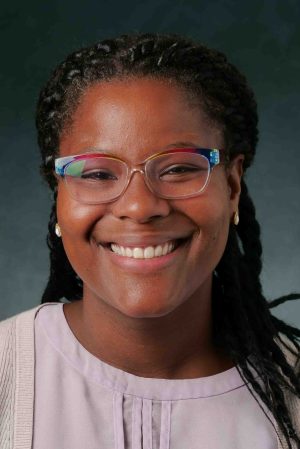
Karen Bailey. Photo by Patrick Campbell.
Karen Bailey, Assistant Professor, University of Colorado at Boulder, Department of Environmental Studies
Karen Bailey is an interdisciplinary ecologist interested in justice and equity in ecology, human–environment interactions, climate change and rural livelihoods. She received her B.A. from Princeton University and her M.S. and Ph.D. from the University of Florida. Her research emphasizes the interactions between social justice, conservation, sustainability and human well-being. Current projects focus on climate adaptation, human–wildlife coexistence and barriers to entry in ecology. She currently serves on the leadership team of the ESA Black Ecologist Section, as a Colorado Parks and Wildlife Commissioner, and as a member of the National Academies Committee on Emerging Science for Environmental Health.
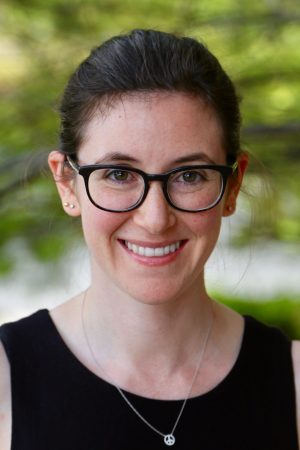
Natalie Christian. Photo by Mikus Abolins-Abols.
Natalie Christian, Assistant Professor, University of Louisville, Department of Biology
Natalie Christian is an assistant professor in the Department of Biology at the University of Louisville. She received her B.A. from Vanderbilt University and her Ph.D. from Indiana University, and was a USDA AFRI NIFA postdoctoral fellow at the University of Illinois. Natalie studies the community ecology of plant-associated microbiomes. She is particularly interested in how these microbial communities respond to global change, as well as how we can harness the plant microbiome to improve crop health. Additionally, she conducts biology education research to understand and promote teaching methods that are best for student learning.
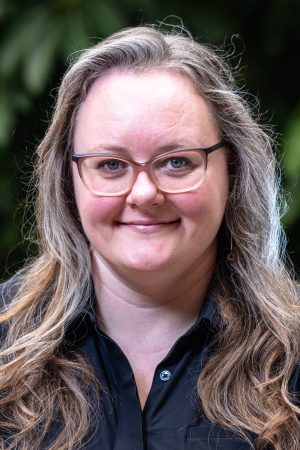
Mary Donovan. Photo by Charlie Leight.
Mary K. Donovan, Assistant Professor, Arizona State University, School of Geographical Sciences and Urban Planning
Mary Donovan is a quantitative ecologist focused on applied questions that inform conservation and management of social–ecological systems. She received her M.S. and Ph.D. from the University of Hawai‘i at Mānoa, and is currently an assistant professor at Arizona State University. Donovan’s research is motivated by informing natural resources decisions by drawing on resilience, complex systems, and social–ecological systems theories. Recent work includes studies disentangling the interactions between local and global impacts on coral reef systems. Her applied work is done alongside practitioners and stakeholders who are implementing management and policy at local, regional and global scales.
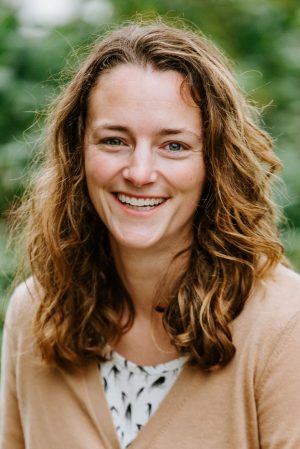
Meredith Holgerson. Photo by Allison Usavage.
Meredith Holgerson, Assistant Professor, Cornell University, Department of Ecology and Evolutionary Biology
Meredith Holgerson is a freshwater ecologist who works at the intersection of ecosystem ecology, community ecology and conservation. She received her B.S. from Denison University, her M.S. from the State University of New York College of Environmental Science and Forestry, and her Ph.D. from Yale University. For her postdoctoral research, Holgerson held a Smith Conservation Research Fellowship. Now an assistant professor at Cornell University, Holgerson’s research focuses on pond and wetland greenhouse gas emissions, carbon sequestration, ecosystem productivity and how community dynamics influence ecosystem processes.
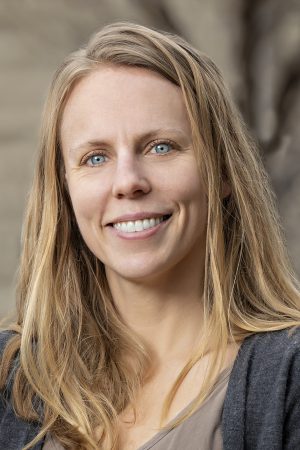
Allison M. Louthan. Photo by J&C Imaging.
Allison M. Louthan, Assistant Professor, Kansas State University, Division of Biology
Allison Louthan is a population and community ecologist interested in the effects of species interactions and climate change on population dynamics. She received her B.A. from Grinnell College and her Ph.D. from the University of Colorado Boulder working with Daniel Doak. She conducted postdoctoral work at Duke University, working with William Morris, and is currently an assistant professor at Kansas State University. Her current projects focus on geographical variation in effects of environmental drivers, including how climate might modulate effects of species interactions on population dynamics.
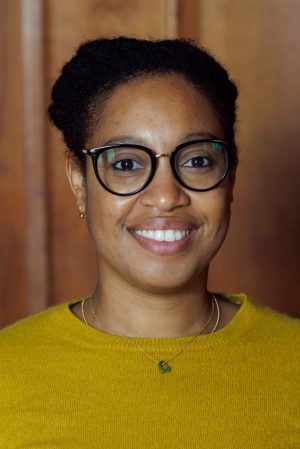
Sparkle L. Malone. Photo by Jim Shelton.
Sparkle L. Malone, Assistant Professor, Yale University, Yale School of the Environment
Sparkle Malone is a disturbance ecologist, elected for making major contributions to our understanding of wetland carbon dynamics. Her research is interdisciplinary and at the intersection of ecosystem, landscape, and disturbance ecology; remote sensing and data science. Dr. Malone obtained her Ph.D. from the University of Alabama in 2014, where she studied carbon fluxes in subtropical wetland ecosystems. She then went on to work for the USDA Forest Service at Rocky Mountain Research Station from 2014 to 2017 and for Florida International University from 2017 to 2022. In the fall of 2022, she joined the Yale School of the Environment and the Yale Center for Natural Carbon Capture.
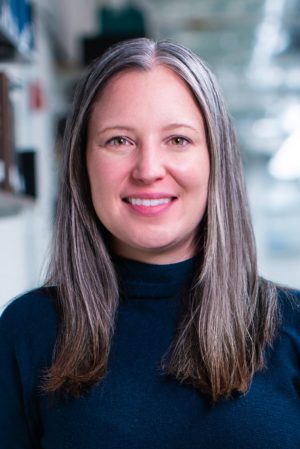
Emily Meineke. Photo by Leon Godwin.
Emily Meineke, Assistant Professor, University of California, Davis, Department of Entomology and Nematology
Emily Meineke earned her doctoral degree at North Carolina State University in the Department of Entomology as an EPA STAR Fellow where she pioneered research characterizing the effects of urban heat islands on insect herbivores. As a National Science Foundation Postdoctoral Fellow at the Harvard University Herbaria, she studied how urbanization and climate change have affected plant–insect relationships worldwide over the past 100+ years. Meineke joined the faculty as an Assistant Professor of Urban Landscape Entomology in the Department of Entomology and Nematology at University of California, Davis in 2020. Her laboratory leverages natural history collections, citywide experiments, and observations to characterize effects of recent anthropogenic change on plant–insect herbivore interactions with funding from the NSF CAREER program, USDA AFRI, and the UC Davis Hellman Fellows program.
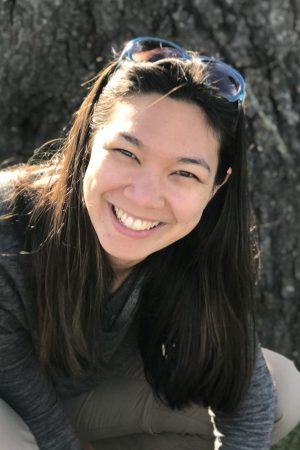
Holly V. Moeller. Photo by Laura Bogar.
Holly V. Moeller, Assistant Professor, University of California, Santa Barbara, Department of Ecology, Evolution, and Marine Biology
Holly Moeller is a theoretical ecologist who uses mathematical and empirical approaches to understand acquired metabolism. She received her B.A. from Rutgers, the State University of New Jersey, and her M.S. from the MIT-WHOI Joint Program. Her Ph.D. examined the metabolic mutualism between trees and ectomycorrhizal fungi. At the University of California, Santa Barbara, she and her team work on a range of systems to understand how metabolic mutualism and organelle retention shape community ecology and eco-evolutionary dynamics. In addition to her scientific work, Moeller is a bit of a “math evangelist” who tells everyone that she meets about the vital role of mathematics in biology.

Lauren Ponisio. Photo by Flor Da Valle.
Lauren Ponisio, Assistant Professor, University of Oregon, Department of Biology
Lauren Ponisio’s research focuses on how species interactions maintain species diversity and how we can harness these processes to manage and restore diversity in human-modified habitats. She earned a Ph.D. from the University of California, Berkeley, and an M.S. and B.S. from Stanford University. Her research has examined ways to persuade California almond growers to adopt more bee-friendly agricultural practices, discovered how native bee species may be best equipped to survive intensive agricultural practices, and analyzed how forest fires can help maintain pollinator biodiversity. She is currently leading a study that could change how forestlands in the Pacific Northwest are managed to benefit wild bees. In addition to her research in the biological sciences, her mission is to promote human diversity in the sciences.
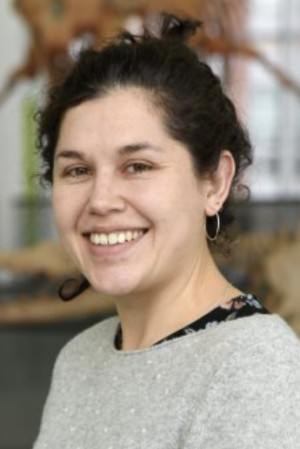
Maria Natalia Umaña. Photo by the University of Michigan.
Maria Natalia Umaña, Assistant Professor, University of Michigan, Department of Ecology and Evolutionary Biology
Maria Natalia Umaña is a forest community ecologist interested in understanding underlying mechanisms that foster and maintain diversity. She received her B.S. and her M.S. from the Universidad de los Andes in Colombia and her Ph.D. from the University of Maryland. Her research emphasizes the role of intra-specific trait variation for addressing questions about community diversity, composition and dynamics. Her current projects focus on developing trait-based demographic frameworks that inform mechanisms underlying patterns of species diversity and dynamics, testing implicit assumptions about trait variation to obtain a general characterization of patterns across scales and studying dynamic functional responses of trees to climatic fluctuations.
##
Learn more about the upcoming ESA Annual Meeting, August 6-11, on the meeting website.
ESA invites press and institutional public information officers to attend for free. To register, please contact ESA Public Information Manager Heidi Swanson directly at gro.asenull@idieh.
###
The Ecological Society of America, founded in 1915, is the world’s largest community of professional ecologists and a trusted source of ecological knowledge, committed to advancing the understanding of life on Earth. The 9,000 member Society publishes five journals and a membership bulletin and broadly shares ecological information through policy, media outreach, and education initiatives. The Society’s Annual Meeting attracts 4,000 attendees and features the most recent advances in ecological science. Visit the ESA website at https://ecologicalsocietyofamerica.org.